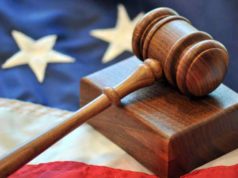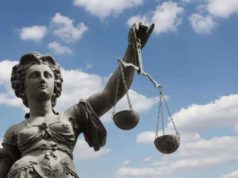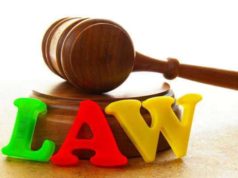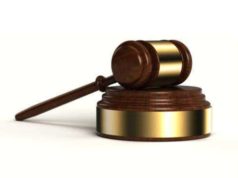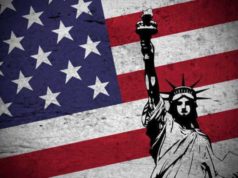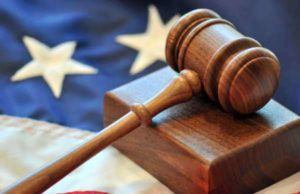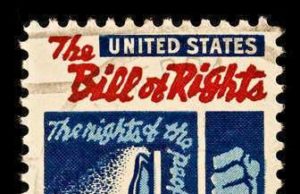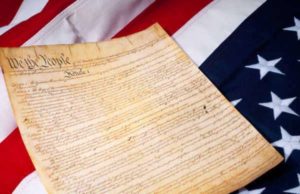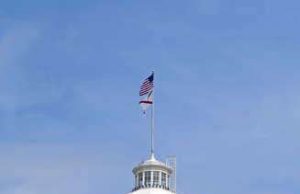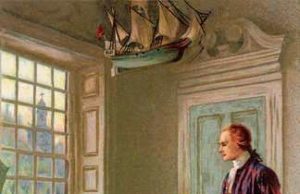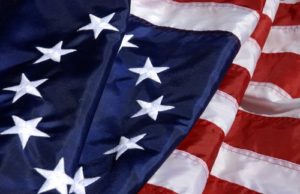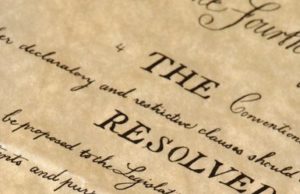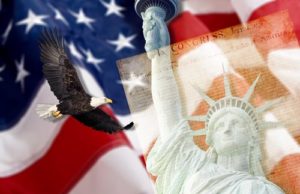Table of Contents

Fred M. Vinson, born January 22, 1890, served as the 13th Chief Justice of the United States, and was the only member of the Democratic Party to hold that position in the 20th century. Vinson presided over the U.S. Supreme Court for six years, from 1946 until his death in 1953. During his tenure, Vinson was a significant influence on Supreme Court jurisprudence and American legal history.
Early Life and Education
Born in Louisa, Kentucky, Vinson was the second of three children to James Vinson and Virginia Ferguson Vinson. His father was both a farmer and a schoolteacher. His mother was a schoolteacher as well. Vinson received his early education at home, and then attended public schools in Ashland. It was here that Vinson first met John Y. Brown, the father of Kentucky Fried Chicken magnate, and later would serve as a justice on the United States Supreme Court along with Vinson.
After graduating from high school, Vinson enrolled at Centre College in Danville, Kentucky. His time at Centre College was brief, however. In 1909, Vinson left school to pursue a career in law. He enrolled at the University of Kentucky College of Law. Vinson graduated in 1911 and began a promising legal career.
Legal Career
After passing the bar exam, Vinson began his legal career in Ashland, Kentucky. He worked for several years as a private attorney before being appointed as a county judge in 1914. He held this position for three years before being elected to the U.S. House of Representatives in 1924.
Congressional Career
Vinson was elected to Congress at the age of 34 and represented Kentucky’s 9th congressional district for eleven years. During his tenure in Congress, Vinson established a reputation as a fiscal conservative and a defender of states’ rights. He also acquired a reputation as a cautious and deliberative legislator, voting his conscience rather than blindly following party lines.
In 1934, Vinson declined to seek re-election and instead returned to private practice. He became an accomplished trial lawyer with a reputation as a fierce advocate for his clients.
After a brief hiatus from politics, Vinson was called back into public service when President Franklin D. Roosevelt appointed him Director of the Bureau of Internal Revenue in 1937. Vinson’s tenure at the Bureau was marked by a crackdown on tax fraud and increased enforcement of the tax code.
In 1943, President Roosevelt appointed Vinson as the Secretary of the Treasury. During his time in that role, Vinson was instrumental in the creation of the International Monetary Fund and the World Bank.
Appointment to the Supreme Court
In 1946, President Harry S. Truman appointed Vinson to the Supreme Court, filling the vacancy created by Justice Owen J. Roberts’ retirement. Vinson’s appointment was controversial, as he had been an outspoken critic of several of President Roosevelt’s New Deal policies.
Despite early reservations about his appointment, Vinson quickly established himself as a respected and influential member of the Court. He was particularly committed to the principles of federalism and adhered to a strict reading of the Constitution. Vinson was also known for his conciliatory demeanor and his ability to build consensus among his fellow justices.
Perhaps Vinson’s most significant contribution to the Court’s jurisprudence was in the area of civil liberties. He was a strong proponent of the First Amendment and is remembered for his opinions in several landmark cases, including United States v. American Library Ass’n, which established the right of libraries to provide access to information without fear of government censorship, and United States v. Paramount Pictures, which struck down Hollywood’s studio system of production and distribution as an illegal monopoly.
Vinson was also a staunch advocate for equal protection under the law. In Shelley v. Kraemer, he wrote the Court’s opinion, which held that racially restrictive covenants in housing contracts were unenforceable under the Fourteenth Amendment. Vinson was an early champion of civil rights and worked to protect the rights of minorities and the disenfranchised in American society.
Chief Justice
In 1949, President Truman appointed Vinson as Chief Justice, succeeding Justice Fred M. Stone. Vinson’s tenure as Chief Justice was marked by a number of significant decisions, including Brown v. Board of Education, which declared segregation in public schools to be unconstitutional.
Despite his conservative tendencies, Vinson was also a staunch defender of individual rights. He established the principle that the Constitution protects a “zone of privacy” in the landmark case Griswold v. Connecticut, which struck down a state law that banned the use of contraceptives.
Vinson passed away on September 8, 1953, from a heart attack at the age of 63. He was remembered as a man of great integrity, a skilled jurist, and a passionate defender of the Constitution and the rule of law. Vinson’s legacy on the Supreme Court is one of fairness, objectivity, and dedication to the values of American democracy.
Conclusion
Fred M. Vinson’s life and career are an inspiration to all who value public service, integrity, and intellectual rigor. Vinson dedicated his life to preserving and protecting the rule of law and the Constitution of the United States.
As a member of Congress, the Treasury Secretary, and, ultimately, the Chief Justice of the United States Supreme Court, Vinson distinguished himself as a thoughtful, ethical, and principled leader. His contributions to American jurisprudence have had a profound and lasting impact on the United States.
Today, Fred M. Vinson’s legacy serves as a reminder of the values that define our democracy – fairness, equality, and justice for all. As we confront the challenges of a changing world, we should look to Vinson’s life and work as a model of what it means to be a true public servant and defender of the Constitution.
During the life of Fred M. Vinson, he served a role in all three branches of the United States Government and was the most prestigious among his political family. An additional six members to the Vinson family held prominent roles in legislation.
As a participant to the legislative branch, Vinson was elected a member of the U.S. House of Representatives which he ran for a term of twelve years. He assumed the role of Secretary of Treasury from 1945-1946, before moving on to the judicial branch where he served as Chief Justice starting in 1946.
Sworn in under oath as the Chief of Justice, Vinson was said to come into the office during a time where the personal and intelligent facets of the Supreme Court were compromised. During Vinson’s time, he wrote 13 dissenting opinions for the court and 77 opinions on the condition of the Supreme Court overall. His strongest disapproval was when the Court voided President Truman from seizing a steel industry during a strike in 1952.
Fred Vinson was also known for his ruling of the Hollywood Ten. Under his leadership, the Court refused to hear the appeal of the Hollywood Ten in their 1947 Congress charge. The Hollywood Ten was a group of directors and writers charged with contempt for refusing to answer questions posed by Congress. The 10 members that made up the Hollywood Ten refused to answer questions regarding their involvement with Communism. Each member of the Hollywood Ten was sentenced to 1 year of prison time and was among a group who was later blacklisted, and thus, prohibited by the Court to reenter the movie industry.
The Fred Vinson Court also handled issues regarding racial segregation. Regarding the issue of segregation, Fred Vinson ruled that states in the South who participated in the “separate but equal practice” needed to set up facilities that were really separate but equal. Fred Vinson’s Court also handled rulings regarding labor unions, Communism, and loyalty oaths.
Fred Vinson was the last Chief Justice to be appointed by the Democratic Party. During his time in office, he wrote several opinions to better the business practices of the Supreme Court, which, at the time, was flawed. Fred Vinson was a very intellectual man who pushed for better American practices. He believed that war was created by man and how a man built the structures of his environment. Fred Vinson’s belief was that anything created by man was changeable.
Vinson held strong political views from his earlier days spent as Governor of Kentucky. His additional positions serving as a U.S. Court of Appeals Judge and Secretary of Treasury geared him for his role as Chief Justice.
The most infamous ruling of Fred Vinson was the refusal of his Court to listen to the appeals of the Hollywood Ten party for exercising the first amendment. Fred Vinson is also associated with setting up laws to better govern the practices of labor unions and setting up actual separate but equal facilities in the South.



